Phnom Penh
Copyright: PlusONE/Shutterstock.comPhnom Penh
Situated at the crossroads of three great rivers – the Mekong, Tonle Sap, and Bassac – Phnom Penh is the heart of a country steeped in tradition, overflowing with rice paddies, jungles, and rural communities. Once a sleepy backwater, Phnom Penh, now, buzzes with commercial activity as the country develops after years of isolation. Old French colonial mansions stand alongside newly emerging designs, which make the city’s mixed architecture and communities fascinating to explore.The City
Phnom Penh took its name from a legendary tale involving a woman called Penh, who is said to have discovered four Buddhas washed ashore by the great river. Following French colonisation in 1869, which lasted until King Norodom Sihanouk declared independence in 1953, the city underwent significant urban development, marked by the construction of impressive villas and wide avenues that now define its city centre. However, the vibrant atmosphere of the 1960s was abruptly disrupted on April 17, 1975, when the Khmer Rouge seized control of the country, causing Phnom Penh to empty almost overnight. After four years, Cambodians returned to rebuild their capital from a small riverside village into the bustling commercial hub it is today. Despite its growth, Phnom Penh retains its unique charm as an unspoiled Asian gem, where cyclo drivers navigate through a sea of motorbikes, embodying the city's dynamic spirit.Do & See
Spend a day walking through the historical streets surrounding the Royal Palace, ride a tuk-tuk hopping from market to market, and end your day gazing at the shimmering lights reflecting off the Tonle Bassac. The city’s life never ceases as the old and the new live alongside each other.
Dining
Composed by a mix of Thai and Vietnamese cuisine, Cambodian cuisine is varied, simple and delicious. A diet is usually based on fish and soups while the local food offers healthy and abundant Asian surprises. Khmer highlights are fish amok (fish cooked in coconut) and barbecued beef, which can be found on most street corners in the early evening around the Central Market. As the city is made up of many communities including Vietnamese, Chinese and Expatriates, there is a variety of delicacies and restaurants catering to a large expatriate community.
Cafés
Just like Siem Reap, Phnom Penh is a haven for fruit lovers. From mangoes of all shapes and sizes to delicious mangosteens. All markets have a fruit section, and sellers walk along most main streets selling fresh papaya, pineapple, and whichever fruit is in season. However, you will still find cafés serving a strong cup of coffee and Western-style pastries.
Bars & Nightlife
Known for being a city without limits, Phnom Penh’s reputation as a nightspot rings true. With the local population out and about at night after years of unrest, bars and clubs have mushroomed in the last years.
Shopping
Phnom Penh has an eclectic shopping scene. Some major international clothing chains have already hit the town, and with the several bustling markets and diverse communities, everything is here—from fragrant markets to modern malls.

 Copyright: Xuanlu Wang/Shutterstock.com
Copyright: Xuanlu Wang/Shutterstock.com
 Copyright: Suzi Kim/Unsplash
Copyright: Suzi Kim/Unsplash
 Copyright: Chelms Varthoumlien/Unsplash
Copyright: Chelms Varthoumlien/Unsplash
 Copyright: 24278850/Pixabay
Copyright: 24278850/Pixabay
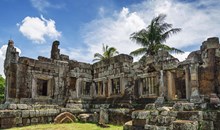 Copyright: JM Travel Photography/Shutterstock.com
Copyright: JM Travel Photography/Shutterstock.com
 Copyright: Peter Stuckings/Shutterstock.com
Copyright: Peter Stuckings/Shutterstock.com
 Copyright: Tepikina Nastya/Shutterstock.com
Copyright: Tepikina Nastya/Shutterstock.com
 Copyright: meunierd/Shutterstock.com
Copyright: meunierd/Shutterstock.com
 Copyright: wal_172619/Pixabay
Copyright: wal_172619/Pixabay
 Copyright: sakepaint/Shutterstock.com
Copyright: sakepaint/Shutterstock.com
 Copyright: sharonang / Pixabay.com
Copyright: sharonang / Pixabay.com
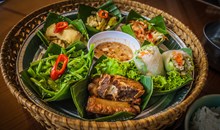 Copyright: GuoZhongHua / Shutterstock.com
Copyright: GuoZhongHua / Shutterstock.com
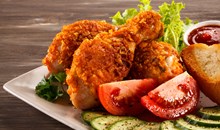 Copyright: Jacek Chabraszewski / Shutterstock.com
Copyright: Jacek Chabraszewski / Shutterstock.com
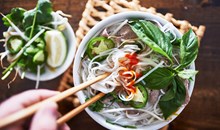 Copyright: Joshua Resnick/Shutterstock.com
Copyright: Joshua Resnick/Shutterstock.com
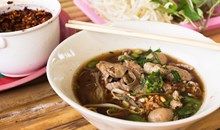 Copyright: PJjaruwan/Shutterstock.com
Copyright: PJjaruwan/Shutterstock.com
 Copyright: Mauro Pezzotta/Shutterstock.com
Copyright: Mauro Pezzotta/Shutterstock.com
 Copyright: Hans / Pixabay.com
Copyright: Hans / Pixabay.com
 Copyright: rawpixel.com / Pexels.com
Copyright: rawpixel.com / Pexels.com
 Copyright: Minerva Studio/Shutterstock.com
Copyright: Minerva Studio/Shutterstock.com
 Copyright: 453169 / Pixabay.com
Copyright: 453169 / Pixabay.com
 Copyright: g-stockstudio/Shutterstock.com
Copyright: g-stockstudio/Shutterstock.com
 Copyright: Amie Johnson/Unsplash
Copyright: Amie Johnson/Unsplash
 Copyright: kaboompics.com / Pexels.com
Copyright: kaboompics.com / Pexels.com
 Copyright: Thoom / Shutterstock.com
Copyright: Thoom / Shutterstock.com
 Copyright: Picography / Pexels.com
Copyright: Picography / Pexels.com
 Copyright: kowit sitthi/Shutterstock.com
Copyright: kowit sitthi/Shutterstock.com
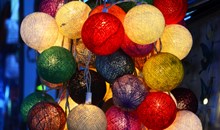 Copyright: Etienne Hartjes / Shutterstock.com
Copyright: Etienne Hartjes / Shutterstock.com
 Copyright: karolranis/Pixabay
Copyright: karolranis/Pixabay
 Copyright: Blend Images/Shutterstock.com
Copyright: Blend Images/Shutterstock.com
 Copyright: Norbert Braun/Unsplash
Copyright: Norbert Braun/Unsplash
 Copyright: VannPhotography/Shutterstock.com
Copyright: VannPhotography/Shutterstock.com
 Copyright: Suzy Hazelwood / Pexels.com
Copyright: Suzy Hazelwood / Pexels.com
 Copyright: dMz/Pixabay
Copyright: dMz/Pixabay
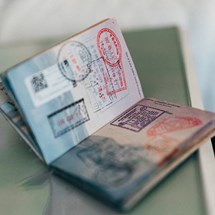 Copyright: ConvertKit/Unsplash
Copyright: ConvertKit/Unsplash
 Copyright: Marco López/Unsplash
Copyright: Marco López/Unsplash
 Copyright: Zhen H/Unsplash
Copyright: Zhen H/Unsplash
 Copyright: kilarov zaneit/Unsplash
Copyright: kilarov zaneit/Unsplash
 Copyright: Chetan Hireholi/Unsplash
Copyright: Chetan Hireholi/Unsplash
 Copyright: Waldemar/Unsplash
Copyright: Waldemar/Unsplash
 Copyright: Sonia Kardash/Unsplash
Copyright: Sonia Kardash/Unsplash
 Copyright: Diana Polekhina/Unsplash
Copyright: Diana Polekhina/Unsplash
 Copyright: Wesley Hilario/Unsplash
Copyright: Wesley Hilario/Unsplash
 Copyright: Mike Winkler/Unsplash
Copyright: Mike Winkler/Unsplash
